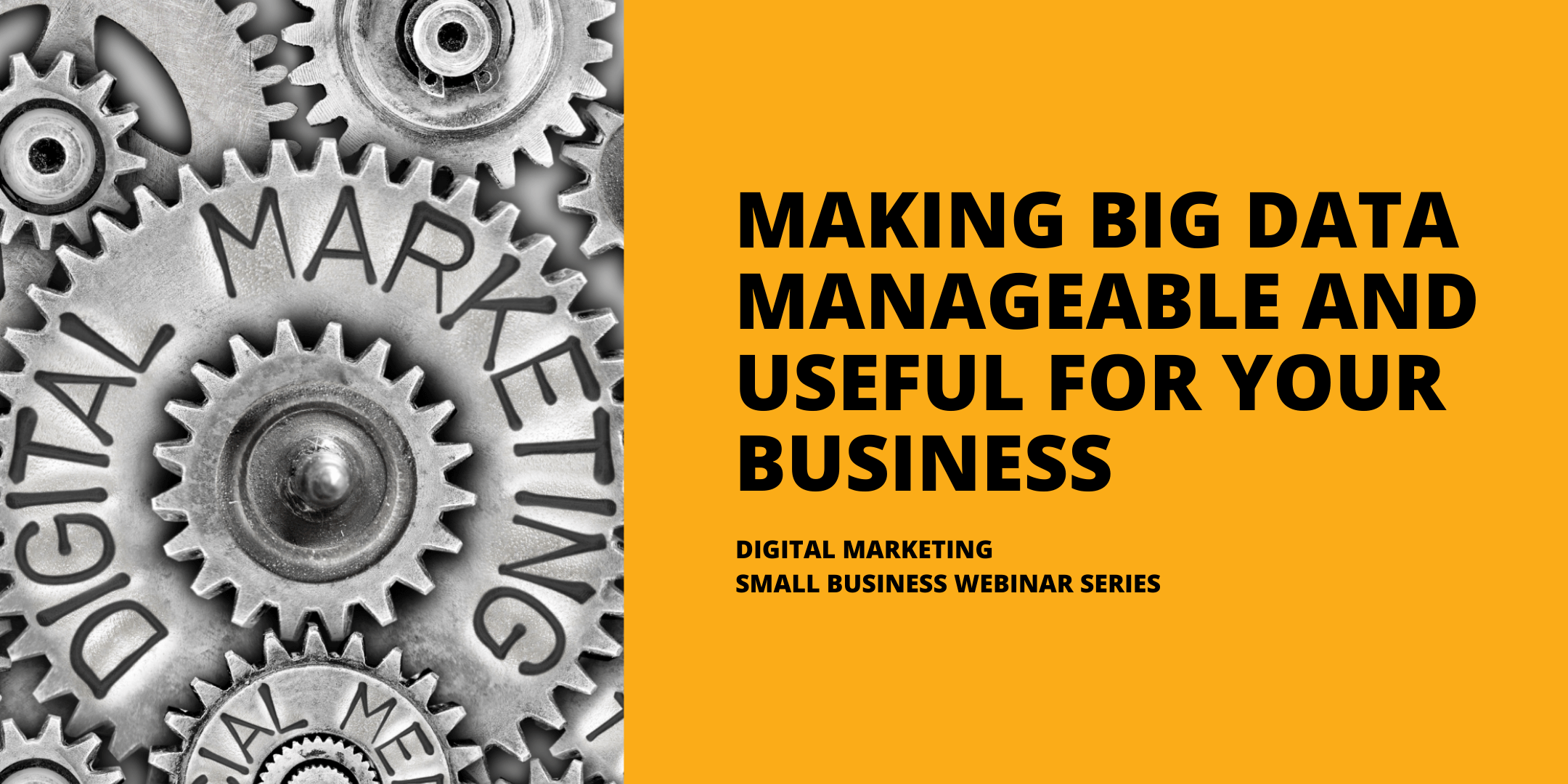Data analytics doesn’t start with numbers. It starts with a few clear questions.
That’s the wisdom June Li, the founder and managing director of ClickInsight, shared with the MBEC community of small business owners and operators during her webinar Grow Your Business with Google Analytics.
“My message to entrepreneurs is that they don’t need to collect data just because they can,” Li said in a telephone interview. “We need to shift that mindset. Entrepreneurs need to decide what their objectives are and where they want to go to grow their business. Then they can decide what they need to see to ensure success and collect that data to support their business growth strategy and direction.”
Create questions to know what data to collect.
Li’s approach prevents the “drowning in data” dangers so many businesses can fall into. Taking the time to articulate questions about customer behavior, about the relationship between marketing reach and conversion, or about the success of a specific email campaign, shows deeper insight into how the business and its online efforts are working.
According to Li, choosing what data to track for analysis should follow the same decision path as making a wise consumer decision.
Think like a customer.
“It’s good to be data driven, but why do it if it doesn’t help your business?” Li asks. “Whenever you are buying something, you need to figure out why you are buying it and what you are using it for. For businesses, tracking data to analyze should follow the same process. Think about your customers and what you need to know about them. How will you know if you are successful or not, that is the data you need.
Choose tools to collect and organize your data.
Once business people identify their questions or information gaps, there are a number of tools that will help collect the data and to organize it in a way that is helpful.
“There are lots of resources,” Li says. “Google analytics is free and – if you don’t have data – you can wander into the Google store and look at the data they have made available for their North American store to start analysis. Only 60% of the traffic to the Google North America store are users from North America. If you don’t take out the 40% of users who don’t do business on the site, you don’t have useful data. A local business is a local business, but there is always traffic from around the world. Focus on the data from the local area or you can’t answer your questions.”
If a business has an ecommerce website, it is very easy to track details about customer views, purchasing behavior and other interactions within specific pages on the site, but the data will not be there unless someone has collected it. Collecting that data is a deliberate process.
“Business people have to apply the same strategy to purchasing data collection as they do to obtaining any other resource and they will improve that strategy as they increase their experience,” Li says. “Collecting data costs money.”
Test your data collection strategies.
Data collection is an investment that can pay off in terms of making campaigns more effective and being able to target users who are more likely to become customers. Some of the ways you collect this data may come from personal, as well as digital interactions.
“One of the easiest ways to learn about customers is to run an ad campaign and have a coupon. Then, when the customer interacts with the coupon code, you’ll know which ad caused someone to come in to the store or to make an order from the site,” Li says. “Restaurants might try running a menu of the day followed by a customer pick up of the food. Then, when you have that in-person connection, you can ask them what brought them to your business and how. There might be fewer opportunities to ask ‘what brought you in today,’ but the question is still important to ask. It helps you as you try to connect the dots and that data – like any data — is helpful if it helps you decide how to target your marketing efforts better.”
Not every business is going to directly benefit from collecting data right away, Li cautions. Businesses need to experiment to be relevant to what they are doing and its success. It’s a process that requires focus.
“Don’t do an email blast while you are running a social media campaign,” Li says. “If a potential customer clicks through as a result of a post about a product, is that what they end up ordering from the site or do they buy something related or different? That’s the kind of question you need to go in with.”
Ultimately, if business owners identify their objectives and know what they want to achieve, collecting specific data will tell them if they are on the right path without getting lost in numbers.
“It ultimately doesn’t matter where you are on the spectrum from big data to small data,” li says. “It’s really all about adapting to change and looking for opportunities. So experiment, experiment and experiment, but be sure it’s based on good data relevant to your business.”
Taking an adaptive, flexible approach to data and the questions it answers helps everyone make the changes we need to do business better.
The Mississauga Business Enterprise Centre (MBEC) is your central source for small business information, resources and guidance. If you have a small business related question, please review our frequently asked questions, steps to starting a small business, or ask a question. Our team of small business experts are available to assist.
To learn more and register for our upcoming webinars and events, please visit mississauga.ca/smallbusinesstraining





